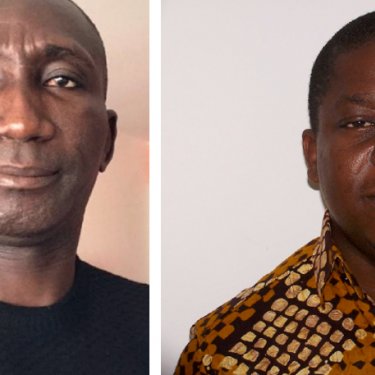Two Togolese newspaper editors jailed over comments during TV programme

Reporters Without Borders (RSF) calls for the release of two newspaper editors in Togo who have been jailed since 10 December for criticising government ministers. Following last July’s revelation that the Togolese authorities targeted several journalists for mobile phone surveillance, the arbitrary detention of these two journalists brings government media policy into further disrepute.
L’Alternative editor Ferdinand Ayité and Fraternité editor Joël Egah were jailed on charges of “defamation” and “insulting authority” after being questioned by the police Intelligence and Investigation Squad about their comments during a discussion on “L’Autre Journal,” a very popular current affairs programme broadcast on L’Alternative’s YouTube channel.
In the course of their discussion, the journalists suggested, without naming them, that two ministers were linked to cases of misuse of government funds. The programme’s presenter, Isidore Kouwonou, was also questioned and was placed under judicial control.
When reached by RSF, Elom Kpade, the lawyer representing the two editors, described the case as a “judicial abuse” initiated by the police and judicial authorities themselves because the two ministers did not file a complaint. Togo’s press law abolished prison sentences for press offences in 2004, but the authorities argue that the editors’ comments are not covered by the press law because they were made on a “social network.”
“The detention of these two journalists constitutes a flagrant and disgraceful circumvention of Togo’s press law,” said Arnaud Froger, the head of RSF’s Africa desk. “The law that applies to journalists on traditional media must also apply to those online. The offences of which they are accused clearly concern their actions as journalists. They have no place being in prison. We call for their release.”
Togo’s media regulator, the High Authority for Broadcasting and Communication (HAAC), has not commented on their arrest although article 16 of the organic law defining its powers says it is authorised to take decisions “with regard to the print, broadcast and online media.” The HAAC’s president refused to answer any questions when reached by RSF.
Critical journalists and media are often threatened and sanctioned in Togo. L’Alternative was already suspended for four months in early 2021 as a result of a complaint by a government minister and, as an international consortium of investigative journalists revealed in July, Ayité was on the list of journalists in Togo who were targeted by its government for potential surveillance with Pegasus, the mobile phone spyware sold by the Israeli firm NSO Group.
Ayité was one of the 24 journalists from nine countries who added their names to the complaints that RSF filed with the UN and the judicial authorities in France in July.
Togo is ranked 74th out of 180 countries in RSF's 2021 World Press Freedom Index.



